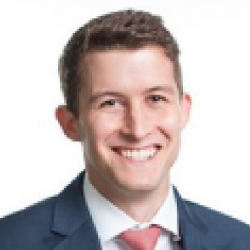Editor’s note: The opinions expressed by the author do not necessarily reflect the opinions of the AAMC or its members.
There exists a contagious notion among medical students that we will easily find the specialty that is perfect for us. For many, though, this is simply not true. In fact, nearly 75% of students change their specialty preferences during medical school, according to the AAMC’s 2017 Report on Residents. What’s more, 20% of residents and 16% of physicians change their specialties to unrelated fields.
“As I’ve forged my own professional path, though, I’ve learned that the key is not to avoid uncertainty. The key is to navigate it successfully.”
As medical professionals, we are taught to mitigate risk and avoid indecisiveness, and feeling unsure can be extremely uncomfortable—especially when so many peers seem incredibly confident in their specialty choices. As I forged my own professional path, though, I’ve learned that the key is not to avoid uncertainty. The key is to navigate it successfully.
I share my story in the hopes that it will make uncertainty more acceptable to my fellow students and that it may help others find their way.
Not long into my medical school career, I began investing heavily in one specialty to bolster my competitiveness as a residency applicant. I pursued research, extracurriculars, conferences, networking, and away rotations related to my specialty and spent no time exploring other options. Because I was doing well academically, I assumed my choice was a good fit.
However, during my final medical school rotations, I became increasingly apathetic—not just toward my chosen specialty but toward everything clinical. I once loved being at the hospital, but now I couldn’t wait to leave. I was so confused, blinded by the belief that there was one true specialty for me, weighed down by worry about debt, and wanting to move on in my training. Was I just tired of being a medical student and yearning for more responsibility, or did I truly not enjoy clinical care anymore? I didn't know.
“For those who are searching, I suggest expanding your network—ask colleagues, mentors, and advisors to connect you with people they know in other fields that interest you.”
I felt completely lost and trapped at the same time. I recognized that moving forward in this state was not wise, so I pulled out of The Match® to explore other options. I began thinking about how I would make the major decision to switch specialties or even to pursue a nonclinical career.
There are quite a few resources to help students with specialty choice, including the AAMC's Careers in Medicine, personal assessments, road maps, and helpful tips. Schools may also offer additional support through the Office of Student Affairs, career services, or specialty-specific advising.
For me, though, I needed an incredible amount of reflection about what I wanted from my future career. I also started to exercise more, which has always helped me think. I considered what got me excited as well as what I was willing to forgo. I talked with friends, family, and mentors about specific options. And though I felt vulnerable telling friends how lost I was, we often talked for hours, frequently over good food and wine.
At one point in the process, I discovered I was making a significant mistake. I had been engaging in sample bias, speaking only with faculty from my institution who tended to follow a conventional trajectory. I needed to get out of my bubble. Eventually I found some great advice and opportunities from professionals outside my institution who had different perspectives. For those who are searching, I suggest expanding your network—ask colleagues, mentors, and advisors to connect you with people they know in other fields that interest you.
Mentors and advisors both played a key role, but my mentors were especially beneficial in figuring out my path. I had my share of helpful advisors in college and medical school, but in medical school I learned the difference between advisors and mentors and benefitted so much from mentors. I recommend finding faculty members with shared professional interests and talking to them about your possible goals and ways to achieve them.
Eventually, I realized that I did enjoy treating patients but that I also wanted more. I wanted to improve the health of whole populations, help reform health systems, and engage with community stakeholders. To build a foundation for the career I wanted, I decided to pursue a master’s degree in public health followed by a residency in internal medicine.
Along the way, I realized how important it was to let people know what appealed to me. At times I found it painfully embarrassing to reveal that I wasn’t sure what I was looking for, but I realized that mentors, advisors, and others couldn’t find opportunities for me or direct me to resources if they didn't know what I was considering. I needed to be honest.
In the end, not all of us will be completely confident in our decisions, but I believe that’s fine. I’ve come to view uncertainty as an opportunity to pursue emerging interests and to embrace shifting perspectives. My experience taught me not to be afraid to explore—and to accept that at some point, a major course correction may be the best way forward.

